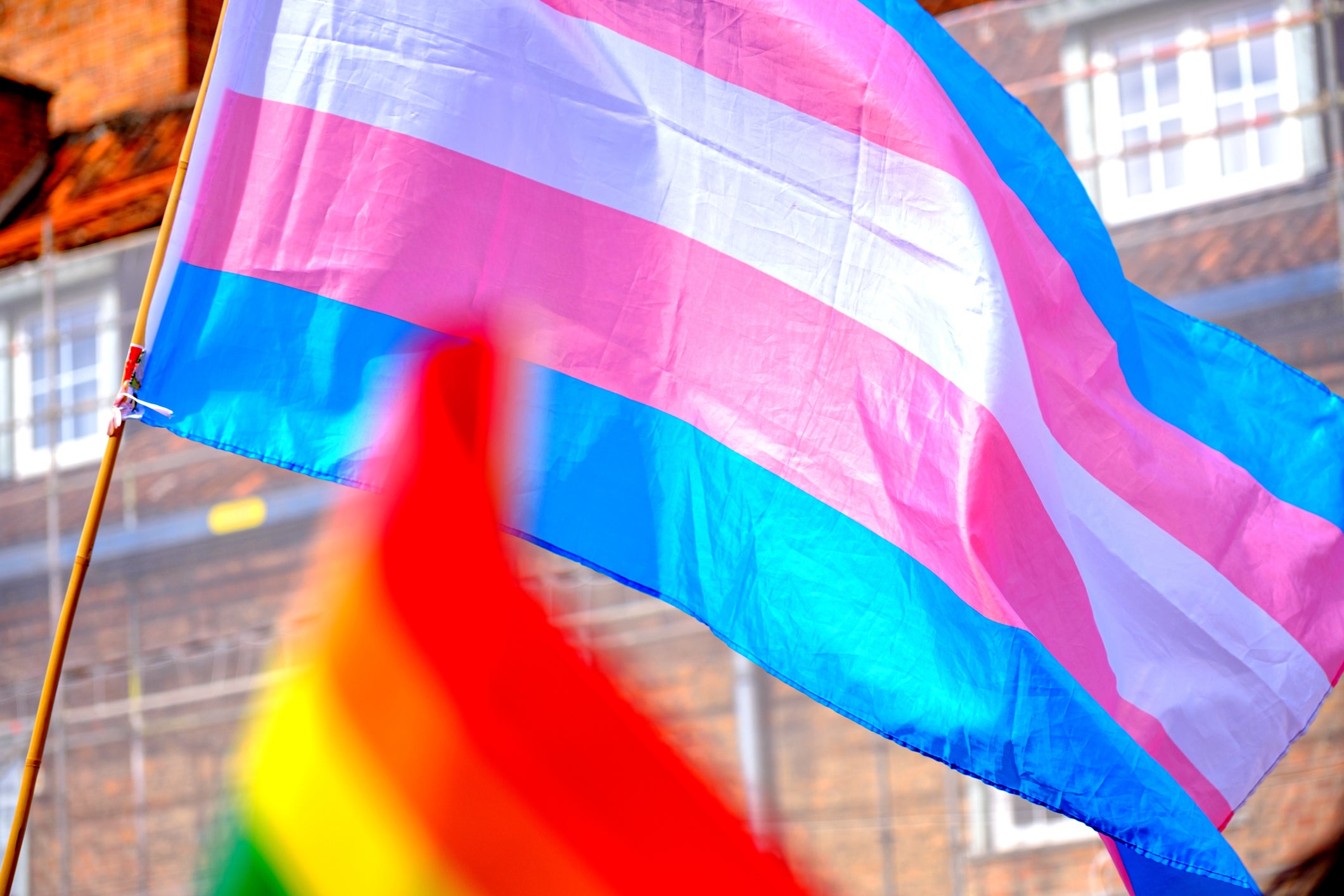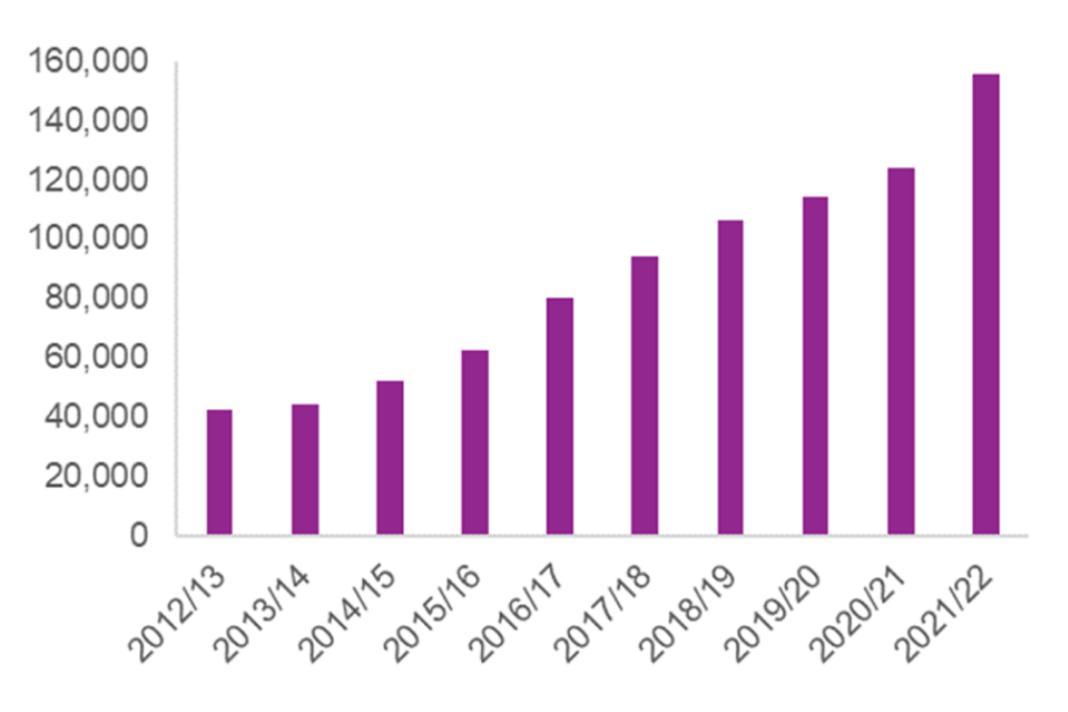Hate crimes reach record high as offences against transgender people double
Home Office report links rise in police-recorded transgender hate crimes to ‘discussions on social media’

Hate crimes targeting transgender people have rocketed by 56 per cent in a year, as the number of overall offences hit a record high in England and Wales.
Almost 156,000 offences were recorded by police in 2021-22, with the year seeing the biggest annual jump since Brexit.
Racially-motivated offences made up the largest proportion overall, followed by those motivated by sexual orientation, disability, religion and transgender identity.
A report published by the Home Office on Thursday said: “Transgender identity hate crimes rose by 56 per cent (from 2,799 to 4,355) over the same period, the largest percentage annual increase in these offences since the series began.
“Transgender issues have been heavily discussed on social media over the last year, which may have led to an increase in related hate crimes.”
The figures came days after the home secretary waded into a Twitter row with Sussex Police, accusing the force of “playing identity politics and denying biology”, after it said it would not tolerate hateful comments about the gender identity of a child sex abuser.
In her speech to Conservative Party conference on Tuesday, Suella Braverman told police to stop “pandering to identity politics”.
Without citing specific incidents, she hit out at “biologically male police officers strip searching female suspects” and called for “more PCs, less PC”.
The former attorney general has been strident in her views at a series of events and interviews around the conference, replying when asked what a woman is that “a woman has two X chromosomes, a woman gives birth, a woman does not have a penis”.
Galop, an LGBT+ anti-abuse charity, said transphobic narratives in the media and by senior politicians have been allowed to grow without challenge and are translating into “violence against our community”.
Chief executive Leni Morris said: “That translates into violence against our community – particularly for trans, non-binary and gender non-conforming people.
“Let us be clear – there is a direct line between words and violent acts against our community, and always has been.”

She said hate crimes against LGBT+ people receive “far lower” sentencing lengths than other forms of hate crime and legislation proposed to make people safer, such as the ban on conversion therapy, is no longer proposing to cover trans people.
“Combined with a growing hostile atmosphere for our community in the media and public life, this is giving a message to those who would do us harm that this is acceptable in this country,” she added.
Nancy Kelley, CEO of Stonewall, called the figures “deeply worrying” and said they show an “alarming rise” in LGBTQ+ people being targeted because of who they are.
She added: “These figures are another reminder that the constant drumbeat of anti LGBTQ+ sentiment in media and politics has a human cost.”
The number of hate crimes recorded has been increasing for a decade, and the report said the trend “is likely to have been mainly driven by improvements in crime recording by the police”.
But it said there have been real-world spikes in hate crime following events such including the Brexit referendum and the terrorist attacks in 2017.
Racially-motivated crimes accounted for 70 per cent of offences, followed by sexual orientation (17 per cent), disability (9 per cent), religion (6 per cent) and transgender identity (3 per cent).

The only category broken down further is religious hate crime, which was mostly targeted at Muslims, followed by Jewish people.
Increases were seen across all categories in the most recent year, with transgender hate seeing the largest percentage rise but racial hate crimes rocketing by the biggest figure in real terms - 17,780 offences.
“The rise seen in the latest year may have been affected by the lower levels of crime recorded in the year ending March 2021 due to the Covid-19 pandemic restrictions,” the Home Office said.
“A spike in the summer of 2021 was largely due to an increase of racially or religiously aggravated public fear, alarm or distress offences.”
The Race Equality Foundation said “alarm bells shoult be ringing” over the figures.
Chief executive Jabeer Butt OBE added: “The government's Hate Crime Action Plan appears to have fallen off the face of the earth, but we need them to wake up and renew the commitment to take action now, as well as recognise the very real damage that harmful narratives can cause to Black, Asian and minority ethnic families and individuals.”
Half of hate crimes are public order offences, which include words or behaviour causing harassment, alarm or distress, while 41 per cent were violence against the person and others included criminal damage and arson.
Less than one in 10 hate crimes result in a prosecution. The Home Office report said 10 per cent of hate crime-flagged public order offences had been chargedin the year, 7 per cent of related violent crimes and 5 per cent of criminal damage and arson hate crime-flagged offences.
A Home Office spokesperson said: “Hate crime is a scourge on communities across the country. It does not reflect the values of modern Britain.
“While the rise in cases is likely to be largely driven by improvements in police recording, these can be serious crimes such as assault and we cannot be complacent. We expect the police to fully investigate these hateful attacks and make sure the cowards who commit them feel the full force of the law.”



Bookmark popover
Removed from bookmarks